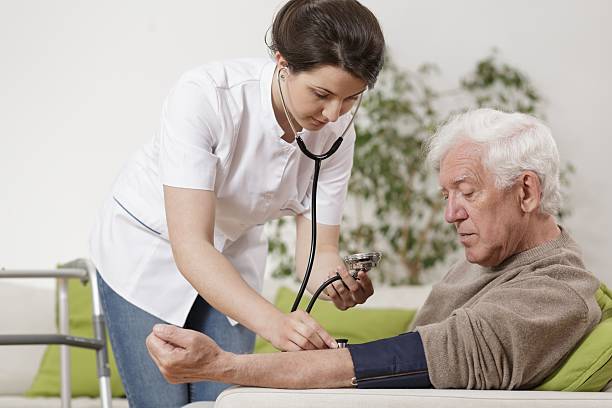The #1 Rated Blood Sugar Formula
8 Negative Effects of Uncontrolled High Blood Pressure

If you have certain symptoms, including fatigue, nausea, shortness of breath, lightheadedness, headache, excessive sweating, palpitations or irregular heart beats, problems with your vision, or confusion; these may be serious and should warrant prompt medical attention.
- It raises your risk of heart attack and stroke. High blood pressure damages the walls of your arteries. This makes them more likely to develop deposits of plaque that harden, narrow or block your arteries. These deposits also can lead to blood clots. Blood clots can flow through your bloodstream and block blood flow to your heart or brain, resulting in a heart attack or stroke.
- It makes you more likely to develop heart failure. When your arteries are hardened or narrowed, your heart has to work harder to circulate your blood. This increased workload can cause your heart to become larger and fail to supply your organs with blood.
- You may experience chest pain. Chest pain, also called angina, occurs when the heart does not get the blood it needs. When people with high blood pressure perform activities such as walking uphill, going up steps, or exercising, angina can cause pressure, squeezing, pain, or a feeling of fullness in the chest.
- It can cause kidney damage. Your kidneys help your body get rid of toxins and regulate many of your body’s complex functions. High blood pressure can cause damage to the arteries around your kidneys. This can reduce their ability to do their job and, at worst, lead to kidney failure.
- You are more likely to develop vision problems. Your eyes are full of small blood vessels that can easily be strained or damaged by high blood pressure. It also can cause swelling of your optic nerve. Lowering your blood pressure sometimes can reverse vision problems. But high blood pressure left untreated can cause permanent vision loss or impairment.
- You could develop sexual dysfunction. High blood pressure can cause low libido in women and erectile dysfunction in men.
- It raises your risk for peripheral artery disease (PAD). PAD occurs when the arteries in your legs, arms, stomach, or head become narrowed and cause pain, cramping, and fatigue. If you have PAD, you also are at an increased risk of heart attack and stroke.
- You have a higher risk of hypertensive crisis.
A hypertensive crisis is a medical emergency that causes your blood pressure to rise above 180/120 rapidly. If your blood pressure gets too high, it can cause damage to your organs and other potentially life-threatening complications. Symptoms of a hypertensive crisis include:
- Blurry vision or other vision problems
- Dizziness
- Lightheadedness
- Severe headaches
- Nosebleed
- Shortness of breath
- Chest discomfort or pain
- A feeling of anxiety or that something is not right
Protecting Your Cardiovascular Health
The good news is that your doctor can identify high blood pressure with regular checks. If found, it can be successfully treated using a combination of medication and heart-healthy lifestyle changes—or sometimes, lifestyle changes alone. Making small changes to your habits, such as eating a lower sodium diet, getting regular exercise, maintaining a healthy weight, limiting alcohol intake, and quitting smoking can lower your blood pressure by 10-20 mmHg or more. And, if your doctor has prescribed blood pressure medication, it is important that you take it as directed. Taking high blood pressure seriously and following your doctor’s treatment instructions can lower your risks of serious complications and make a big difference in your overall health. If you have uncontrolled high blood pressure or think you might be at risk, schedule an appointment with your primary care provider today.Symptoms of High Blood Pressure
- Blurry or double vision.
- Lightheadedness/Fainting.
- Fatigue.
- Headache.
- Heart palpitations.
- Nosebleeds.
- Shortness of breath.
- Nausea and/or vomiting.






